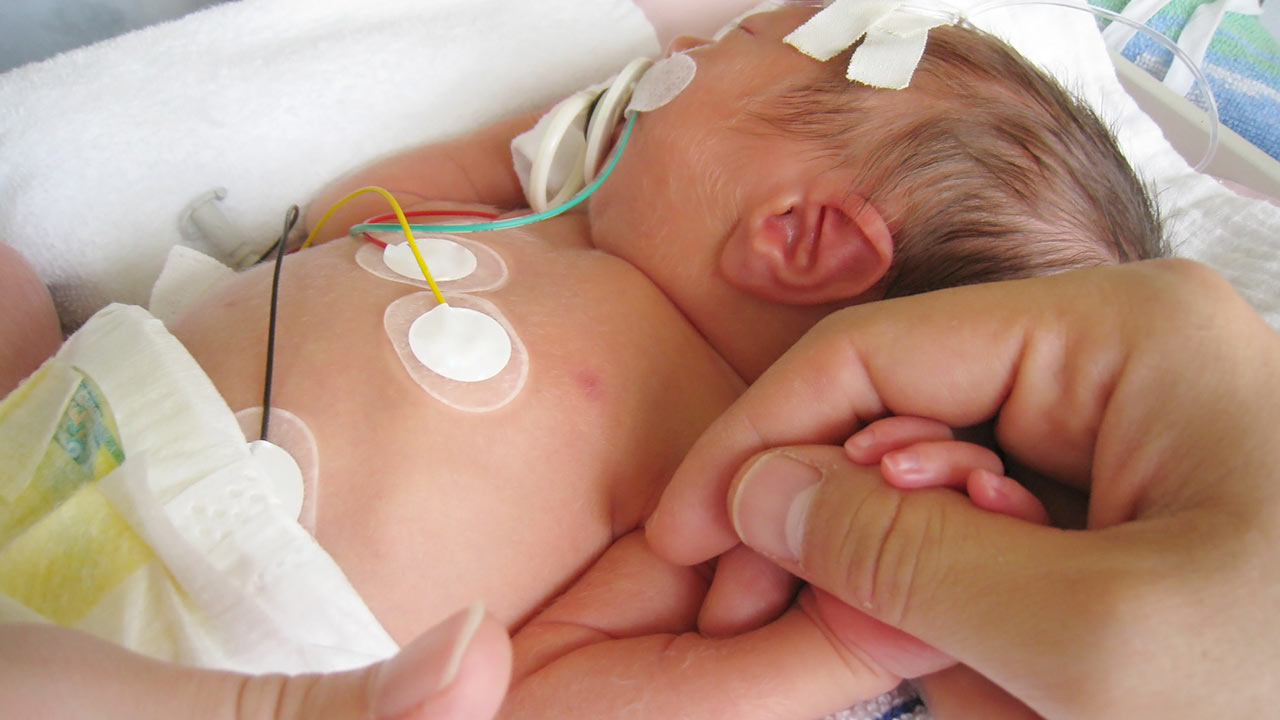
Navigating the Emotional and Medical Labyrinth of a Baby in Intensive Care
The birth of a child is a momentous occasion, a time of immense joy and anticipation. However, for some families, this joyous event is overshadowed by the unexpected and heart-wrenching reality of having a baby admitted to the intensive care unit (ICU).
The ICU is a specialized hospital unit equipped with advanced medical technology and staffed by highly trained healthcare professionals. It provides life-saving care to critically ill or injured infants who require constant monitoring and intensive medical interventions.
Understanding the Reasons for ICU Admission
Babies may be admitted to the ICU for a variety of reasons, including:
- Premature birth (born before 37 weeks of gestation)
- Low birth weight (less than 2,500 grams)
- Respiratory distress syndrome (difficulty breathing)
- Heart defects
- Neurological disorders
- Infections
- Trauma
The Emotional Impact on Parents
Having a baby in the ICU can be an emotionally overwhelming experience for parents. The sudden and unexpected nature of the admission can trigger feelings of shock, disbelief, and anxiety. Parents may feel helpless and overwhelmed by the complex medical information and the unfamiliar hospital environment.
The uncertainty surrounding the baby’s condition can lead to intense worry and fear. Parents may experience a roller coaster of emotions, from hope to despair, as they navigate the daily ups and downs of their baby’s progress.
The Medical Journey
The medical journey of a baby in the ICU can be complex and challenging. Infants in the ICU often require a range of treatments and interventions, including:
- Mechanical ventilation (breathing support)
- Intravenous fluids and medications
- Monitoring of vital signs (heart rate, blood pressure, temperature)
- Surgeries or other procedures
The length of stay in the ICU can vary significantly depending on the baby’s condition. Some infants may be discharged within a few days, while others may require weeks or even months of intensive care.
The Role of Healthcare Professionals
Healthcare professionals play a crucial role in supporting families during this difficult time. They provide medical expertise, emotional support, and guidance.
- Neonatologists: These specialized pediatricians are responsible for the medical care of newborns in the ICU. They work closely with parents to explain the baby’s condition, treatment options, and prognosis.
- Nurses: ICU nurses provide round-the-clock care for babies, monitoring their vital signs, administering medications, and providing comfort. They are often the first point of contact for parents and can offer reassurance and support.
- Respiratory therapists: These professionals specialize in respiratory care and assist with mechanical ventilation and other breathing support techniques.
- Social workers: Social workers provide emotional support to families, help them navigate the healthcare system, and connect them with community resources.
Supporting Parents
Supporting parents of a baby in the ICU is essential. Here are some ways to provide comfort and assistance:
- Offer emotional support: Let parents know that you are there for them and that you understand their pain. Listen to their concerns, validate their feelings, and offer words of encouragement.
- Provide practical help: Offer to run errands, cook meals, or take care of other children. These small acts of kindness can alleviate some of the stress and burden on parents.
- Respect their boundaries: Parents may need space and time to process their emotions. Respect their need for privacy and let them know that you are available whenever they need you.
- Connect them with resources: Provide parents with information about support groups, online forums, and other resources that can offer additional support and connection.
The Long-Term Impact
The experience of having a baby in the ICU can have a lasting impact on families. Parents may experience post-traumatic stress disorder (PTSD), anxiety, or depression. They may also have concerns about their baby’s long-term health and development.
It is important for families to seek professional help if they are struggling to cope with the emotional and psychological effects of their experience. Therapy, support groups, and other resources can help them process their emotions, develop coping mechanisms, and build resilience.
Conclusion
Having a baby in the ICU is a profoundly challenging experience that can test the limits of a family’s emotional and physical endurance. However, with the support of healthcare professionals, family, and friends, parents can navigate this difficult journey and emerge stronger.
By understanding the reasons for ICU admission, the medical journey, and the role of healthcare professionals, parents can gain a sense of control and empowerment. Supporting parents during this time is crucial to their well-being and the long-term health and happiness of their child.
